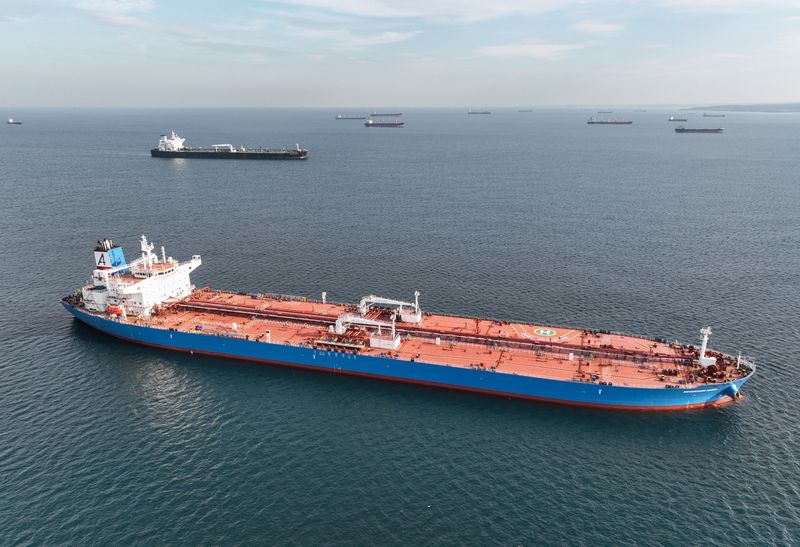Why does Turkey not allow oil tankers?
2022.12.08 12:18
[ad_1]

Why does Turkey not allow oil tankers?
Budrigannews.com – On Thursday, Turkey’s maritime authority stated that insurance checks on ships in its waters were a “routine procedure” and that it would continue to prevent the passage of oil tankers without the appropriate insurance letters.
The blockade, which comes as the G7 and the European Union impose a price cap on Russian oil, is causing a growing sense of unease in the oil and tanker markets.
Daily, the Bosphorus and Dardanelles straits in Turkey transport millions of barrels of oil from Russian ports to the Mediterranean.
The issue’s key facts are listed below.
Protection & Indemnity (P&I) insurance is a type of insurance that ships typically have. This insurance covers claims made by third parties for injuries and damages to the environment. Policies that separate the hull and machinery (H&M) protect vessels from physical damage.
At the beginning of December, Turkish authorities implemented new requirements requiring every ship to have P&I insurance coverage for all circumstances when sailing through Turkish waters or making port calls.
“Necessary to confirm that P&I insurances are still valid and inclusive during the passage of cargo ships, especially products… through the Turkish Straits,” read a circular issued on November 16 by Turkey’s Ministry of Transport and Infrastructure and seen by Reuters.
It went on to say, pointing to the potentially devastating effects of any accident: It was decided that receiving an additional letter of confirmation that the ship would still be covered by the valid P&I insurance during this voyage would be the most cost-effective and reasonable solution.”
Prior to the Dec. 5 price cap of $60 per barrel for Russian seaborne crude, the new regulations went into effect.
Western insurers are required to keep evidence that Russian oil covered is sold at or below that price using that mechanism. If the G7 decides to alter the price cap at a later date, the sector has a 45-day transition period and a 90-day grace period.
More Azerbaijan stop the supply of Russian oil
Even in the event that a ship is found to have violated Western sanctions, ship insurers assert that the Turkish requirements would require them to continue providing cover and, as a result, cover any losses.
The International Group association represents the top tier of P&I insurers, which has 13 clubs and covers about 90% of the world’s ocean-going tonnage.
The Worldwide Gathering, which has had conversations with Turkish specialists, has evaluated that part clubs shouldn’t issue such a letter, P&I clubs said for this present week in warning notes.
In an advisory, the ship insurer UK P&I Club stated, “Issuing a confirmatory letter under these circumstances would expose the Club to a breach of sanctions under EU, UK, and US law, and as such the Clubs cannot comply with the Turkish Authority’s request.”
One tanker insured by Russian insurer Ingosstrakh was able to sail after a letter was submitted after the regulations went into effect.
Over 80% of the world’s merchant fleet is represented by the International Chamber of Shipping (ICS) association, which expressed hope for a swift resolution.
A spokesperson for the ICS stated, “We’re aware that high-level discussions are underway to provide clarity on Turkish government requirements that crude tankers entering or transiting Turkish waters must provide assurance from the owner’s insurers that cover will remain, even in the event of a breach of sanctions.” This requirement applies to crude tankers entering or transiting Turkish waters.
“The notice goes beyond typical confirmations of cover, causing vessels to be delayed while clarification of the scope of the new requirements is sought,” reads the notice.
Asia and Europe are separated by the Turkish Straits, which include Istanbul’s Bosphorus and the Dardanelles waterways.
One of the most significant choke points in the world for the maritime transit of oil is the Bosphorus, a 17-mile waterway that connects the Black Sea to the Sea of Marmara and eventually the Mediterranean Sea.
Over 3% of the world’s supply, or 3 million barrels per day, came through the Bosphorus in 2017, mostly from Russia and the Caspian Sea, according to an analysis by the US Energy Information Administration.
The Sea of Marmara is connected to the Aegean and Mediterranean Seas separately by the 40-mile Dardanelles Strait.
According to the Tribeca shipping agency, the number of tankers waiting in the Black Sea to cross the Bosphorus strait and reach the Mediterranean Sea increased from 16 earlier on Thursday.
According to the agency, there were a total of 28 tankers waiting, with nine additional vessels awaiting at the Dardanelles.








